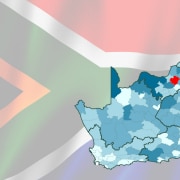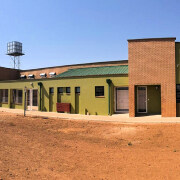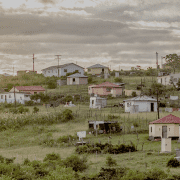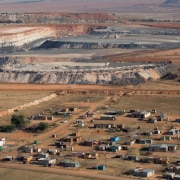|
Getting your Trinity Audio player ready...
|
Sibanye-Stillwater mine in Marikana, in the North West. Photo: Sibanye-Stillwater.
By Kwazi Dlamini
The mineral-rich Bapo Ba Mogale community in the North West (NW) is still looking for answers from the premier’s office regarding the delayed release of the report of the Mafereka Commission of Inquiry. The final report was handed to then premier Thandi Modise in mid-2013 and has been kept under wraps ever since.
In 2011, the North West provincial government established the Mafereka commission to look into traditional leadership in the province but its findings and recommendations have not been made available or implemented. The disgruntled community is demanding the public release of the report and they believe that the provincial government is hiding something from them.
Instead of making the Mafereka report available, the provincial government established another commission of inquiry to look into the same matter. Then premier Supra Mahumapelo established the Baloyi Commission of Inquiry in 2016 to probe the leadership and finances of the traditional communities in the province. Current premier Job Mokgoro released the Baloyi report on 21 August 2020, on the same day the provincial government recognised Andrew Nkwane Mogale as the new chief of the Bapo Ba Mogale community, succeeding the late Kgosi Bob Mogale.
Matshidiso Dibakwane, an attorney at Corruption Watch (CW) who works on a mining royalties project, says that the Bapo Ba Mogale, being a mining community, has had traditional leadership disputes for a long time. The Public Protector uncovered the theft of over R600-million from the community’s bank account and found the administrators to be the culprits. The community believes that some people were appointed to the project for sinister reasons – hence the need for issues of traditional leadership to be determined independently without any political interference.
“As CW, we are not advocating for any specific chief to lead the Bapo Ba Mogale community. In addition, we are of the view that both commissions of inquiry reports should be made available to the public and the affected parties,” added Dibakwane.
The traditional leadership disputes amongst the communities meant that they could not have a formal structure to handle issues of mining royalties paid by the mines that operate on their land.
Shortly after the release of the Baloyi report, CW wrote a formal correspondence to the NW premier’s office requesting the status of the Mafereka report. The premier’s office acknowledged receipt but failed to respond by the provided deadline.
A lack of transparency
CW’s obligation has always been to promote accountability and transparency for progressive governance, and the affected communities believe that there is a lack of transparency with the Mafereka commission.
“Transparency on commissions of inquiry, at the very least, promotes values of accountability and allows for debate and deliberation beyond the limited lifespan of an inquiry. No commission of inquiry should be established and then ignored. What is more concerning is that the Mafereka commission concluded the work and the premier has the report,” said Dibakwane.
The Mafereka report was also sent to the North West Department of Cooperative Governance and Traditional Affairs (Cogta). Cogta sent it on to then NW premier Thandi Modise, who was replaced by Mahumapelo in 2014.
In 2015, the High Court in Pretoria ordered the release of the Mafereka Commission report, including recordings and minutes of the proceedings.
The premier failed to act on the court order, leading the court to issue him with a contempt of court order – but the matter was exacerbated by the sheriff’s failure to execute the contempt order, without any explanation.
The affected communities have approached Cogta, the NW premier’s office, and the Presidency, requesting the release of the report – to no avail. Their hope now is to expose the lack of action by those in higher provincial government structures, and to exert pressure on the NW government to release the Mafereka report.








